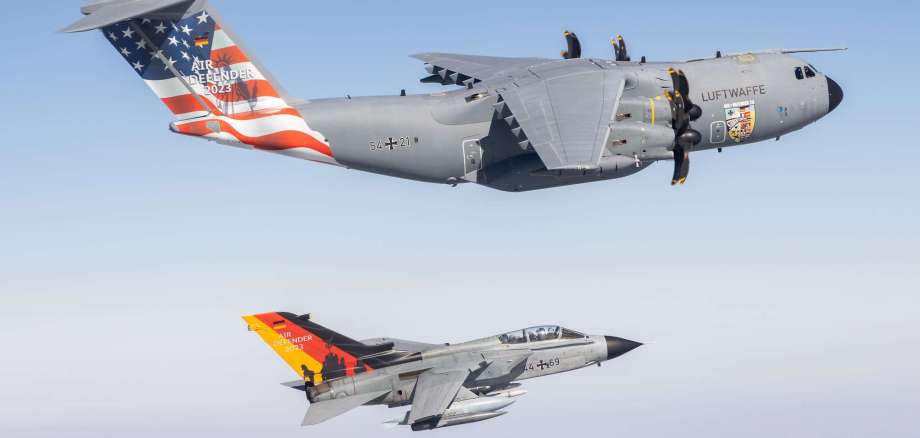The first week of the large-scale military exercise Air Defender 2023 went off without any significant disruptions. The impact on civil air traffic was minimal as a result of the detailed preparation and professionalism of air traffic control staff.
For the duration of the exercise, DFS boosted available staff by 20 percent for this specific event. DFS is supporting the exercise from a coordination cell. Staff from the central operational divisions at DFS have been meeting there several times a day with local representatives from the DFS branches. The German Air Force, the Federal Ministry for Digital and Transport (BMDV) as well as the Maastricht Upper Area Control Centre (MUAC) are also involved. Together, the group observes and optimises exercise procedures.
Thanks to this close and professional cooperation between all parties involved and the massive increase in staff at DFS, the impact on civil traffic was kept to a minimum.
Less delay than expected
The forecasts of EUROCONTROL's Network Manager predicted 55,000 delay minutes per day for Air Defender, a value which has been significantly undercut. In the first week of the exercise, flight delays caused by Air Defender were in the range of 22,000 minutes per day. By comparison, on summer days with thunderstorm activity, delays in German airspace can add up to up to 50,000 delay minutes.
Arrival and departure punctuality at German airports was hardly affected by Air Defender. The delay per flight was in the single-digit minute range.
More than 750 military flights in German skies
Up to 220 flights per day were made by the military participants in the air exercise as they conducted their extensive training programme. In total, there have been more than 750 military flights in the reserved airspaces in the north, south and east of Germany over the past four days. DFS guided these flights to and from the reserved exercise areas. This is made easier by the fact that DFS integrates civil and military air navigation services under one roof. In addition, DFS controllers are guiding civil air traffic around the airspaces used for military purposes.
This week, DFS has guided military aircraft to the exercise areas without delays and civil air traffic through German airspace without significant disruptions. Working with airports and airlines, DFS will do everything possible to minimise the impact on passenger and cargo flights again in the second week of the military exercise Air Defender.
Media contact:
Robert Ertler
Telephone: +49 (0)6103 / 707-4160
E-mail: presse@dfs.de
DFS Deutsche Flugsicherung GmbH (DFS), the German air navigation service provider, is a State-owned company under private law with 5,600 employees as at 31 December 2022. DFS ensures the safe and punctual flow of air traffic over Germany. Around 2,200 air traffic controllers guide more than three million flights through German airspace in peak years, up to 10,000 every day. The company operates control centres in Bremen, Karlsruhe, Langen and Munich as well as control towers at the 15 designated international airports in Germany. The subsidiary DFS Aviation Services GmbH markets and sells products and services related to air navigation services, and provides air traffic control at nine regional airports in Germany and at London Gatwick Airport and Edinburgh Airport in the UK. DFS is working on the integration of drones into air traffic and has set up a joint venture, Droniq GmbH, with Deutsche Telekom. Other subsidiaries include R. Eisenschmidt GmbH, which markets publications and products for general aviation, and Kaufbeuren ATM Training GmbH (KAT), which provides training for military air traffic services personnel. The joint venture FCS Flight Calibration Services GmbH offers flight inspection services.
